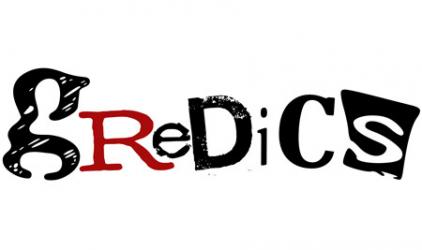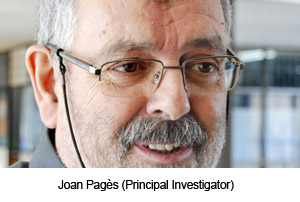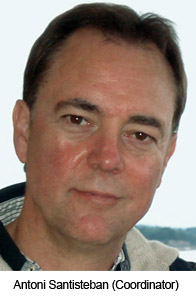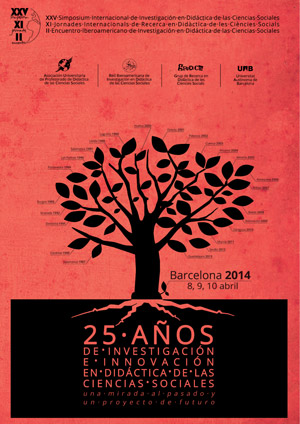The GREDICS Group: Research in Historical Consciousness and Citizens’ Consciousness (Joan Pagès and Antoni Santisteban)

Here we describe two research projects of the GREDICS group (Grup de Recerca en Didàctica de les Ciències Socials – Social Sciences Education Research Group) at the Universidad Autónoma de Barcelona. Members of the group include Joan Pagès (Principal Investigator), Antoni Santisteban (Coordinator), Neus González, Montserrat Oller, Cecília Llobet, Edda Sant, Marta Canal, Roser Canals, and Joan Llusà.
In one project, the GREDICS group participated in research for the “Reception and Production of National History Narratives Seminar” coordinated by Dr. Françoise Lantheaume. This research was conducted on compulsory education (between 6 and 16 years of age in Spain), and post-compulsory education, including teachers in training.  We will provide a summary of the findings from the latter group. The research is based on students’ accounts of the history of Catalonia, on people and facts they remembered, and how they construct the historical narrative. Participants were undergraduate students in elementary teaching and Master’s students in secondary teaching, with 200 students in total.
We will provide a summary of the findings from the latter group. The research is based on students’ accounts of the history of Catalonia, on people and facts they remembered, and how they construct the historical narrative. Participants were undergraduate students in elementary teaching and Master’s students in secondary teaching, with 200 students in total.
 Students cited symbolic elements, and people and facts in national Catalan history: the flag, national anthem, the national holiday (September 11), etc. There were other references such as facts and people from contemporary history: the origins of Catalan nationalism, Catalan literature and art (modernism, the architect Antoni Gaudí), the Second Spanish Republic, the Civil War, etc. Most of the facts were “political” or “military.” There were few references to social and economic problems. The people who were cited were men, mostly dominant politicians. No minorities. No women.
Students cited symbolic elements, and people and facts in national Catalan history: the flag, national anthem, the national holiday (September 11), etc. There were other references such as facts and people from contemporary history: the origins of Catalan nationalism, Catalan literature and art (modernism, the architect Antoni Gaudí), the Second Spanish Republic, the Civil War, etc. Most of the facts were “political” or “military.” There were few references to social and economic problems. The people who were cited were men, mostly dominant politicians. No minorities. No women.
The narratives are linear and discontinuous. Thirty percent are not accounts, but lists of events. These results indicate that we need to improve teacher training. It is equally important to teach the history of Catalonia as a land where different cultures meet and commingle. Historical thinking must be developed in order to understand the present and think about the future. History is an indispensible resource for citizenship education.
Another group research project, led by Antoni Santisteban, has as its central question: how can we develop social and citizenship competence through working with societal problems? The research phases were: a) establish a theoretical framework; b) analyze secondary students’ social representations of societal problems; c) develop and test teaching sequences based on current societal issues.
a) Research findings demonstrate two main conclusions. The first indicates that any academic content can be problematized. The second supports a social sciences curriculum based on societal problems, such as “controversial issues,” “issues-centred education,” or “questions socialement vives” (QSV) (important societal issues).
b) What were students’ representations of societal problems? How did they interpret them? Three hundred thirty-nine students participated. We observed that the students perceive these problems to be far removed from their reality. Their solutions demonstrate a tendency towards individual measures, with little confidence in public institutions. Older students have a better understanding of the complexity of the issues, but they also find it more difficult to think of solutions.
c) From these findings two teaching sequences were developed for different secondary grades. One of the sequences, titled “Limits, Borders, and Walls,” was tested in five teaching institutions in Catalonia. Two hundred seventy-four students participated (between 12 and 17 years old). It is based on: a) a conceptual reflection on the meaning of limits, borders, and walls; b) walls throughout history; c) a map of border conflicts throughout the world; d) case studies, such as Palestine, United States/Mexico, Spain/Morocco, North Korea/South Korea; e) invisible walls within cities; f) ‘us’ and those on the other side of the wall: argument and counter-argument based on a scenario or a simulation.
Some conclusions: a) it was demonstrated that it is necessary to use important societal issues; b) conceptual reflection is paramount; c) it is important to provide a historical view of controversial subjects; d) students improved their perceptions of the complexity of the issues, but they lacked the tools to make decisions; e) interactive methods, such as debate, simulation, argument and counter-argument are essential for the development of social and citizenship competence.
The group is currently engaged in a research project on the development of historical-social thinking. The results of this research, along with research results of other international groups, will be presented at the 25th International Social Sciences Education Symposium organized by GREDICS. We hope to see you all in Barcelona from April 8 to 10, 2014!

